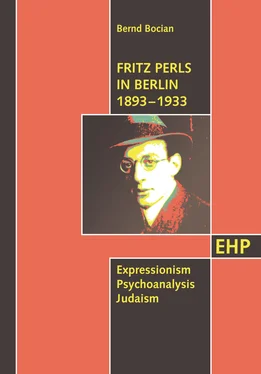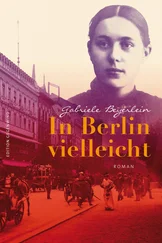Incidentally, the many accusations brought against Nathan Perls, including that he had introduced his father-in-law as an English dignitary, had to be retracted when he himself brought a lawsuit against his main accuser in the year 1912. Showing no fear of the many witnesses scheduled to testify against him, he demanded that these individuals confront him in court or, at a minimum, be re-examined by the court itself. At the new court hearing, the testimony of the witnesses favored Nathan Perls, and the accusations »could not be shown to have merit in any of the instances« (ibid., 21).
In contrast to the Jacobin Freemason traditions in France, official German Freemasonry exhibited Prusso-German nationalist sentiment and was politically conservative, as was the majority of the German bourgeoisie during the Wilhelminian era (see Kischke 1999, 59; Peters n. d., 178, 181). Most of the lodges later tried to adapt to the Nazi régime, as did almost all bourgeois organizations, so that, for example, the first regular Lodge had already introduced the »Aryan statute« as a preventive measure in 1930, pursuant to which Jews who had converted to Christianity were also barred from membership (see Melzer 1999). The notion that German Freemason lodges together with Jews and Bolshevism formed the core of a world conspiracy was an unadulterated Nazi fantasy.
3.6 Experiences in the Theater. The Search for Emotional Truth
Whenever something real happens I am deeply moved, and whenever I get deeply involved in an encounter with a patient, I forget my audience and their possible admiration completely and then I am all there. (Perls 1977, 2)
3.6.1 A Mother Who Loved Art
As the daughter of a tailor, Amalie Perls, Fritz’s mother, had not enjoyed any higher secondary education, but as a typical middle-class housewife she sought a home in beauty, in art. She passed this love of hers along as a present to her son who maintained a connection with classical music, opera, painting, and the theater for his entire life. Perls recalled that his first visit to the Berlin National Gallery had been at approximately age eight, when he had embarrassed his mother by his particular fascination with paintings of naked women and had perceived the religious pictures as »propaganda for Jesus Christ« (see Perls 1977, 131). 33Mother and son visited the theater and took in opera performances together in Berlin, and Amalie would put money aside so she could pay for the tickets. In Berlin, Perls took acting classes, sang Bach cantatas, and wrote poems. Later on, he began to paint in the USA, took painting instruction in Israel on one of his world tours, and regularly returned to Europe after 1945 to visit museums and the opera (Vienna and Verona, for example). 34Unlike Freud, he was a great music lover. During the memorial service that was organized in San Francisco after his death in March 1970, dancer Anna Halprin performed an improvisation to music by Gustav Mahler, who, according to Taylor Stoehr, was Perls’s favored composer (see Stoehr 1994, 282). Perls’s love of Mahler’s music predated the Mahler Renaissance in the record market. As a Jew, Mahler felt homeless and inwardly torn in the German cultural environment. His music – often described as an expression of »brokenness« – is interwoven with diverse and apparently contradictory musical elements (see Adorno 1960; Hermand 1996, 71 f.). Mahler’s music is characterized by paradoxes, and Mahler himself emphasized that his symphonies cannot be interpreted »with elegance« (see Müller 1988, 609). Referring to Mahler’s music, conductor Eliahu Inbal stresses that »when beauty is present, ugliness is present as well« (Inbal in Müller 1988, 604) and that one musical passage must be understood through the other. Inbal views the seemingly contradictory tones as elements of a large symphonic Gestalt that can only be understood in context: »Being torn implies both disruption as well as cohesion!« (Inbal in ibid., 614) As I will subsequently demonstrate, similar themes can be identified in Perls’s life and work.
Perls’s experiences in the theater in Berlin had an early as well as lasting effect on him. Even as a child he was fascinated by the world of the stage, a fascination that was triggered at age four by falling in love with a circus rider, his »first goddess,« (Perls 1977, 281) and dreams of someday becoming part of her world that seemed so wonderful to him. In the narrower sense, he had his first experiences with theater in the living room of his own home. In bourgeois culture, art was not merely consumed but also produced (see Ottersbach 1992, 7). Chamber music in the home formed part of this, and was a daily occurrence in the domestic life of Lore Posner, for example, who was a talented pianist and would later become Perls’s wife – and then there were theatrical performances as well. Theo Freiberger, a neighbor’s son, was permitted to use the Perls family’s spacious living room for his performances. As a little boy, Fritz watched the rehearsals and was allowed to help out a little here or there. With the help of Perls’s Hebrew teacher, Theo Freiberger produced an opera, Verdi’s »Il Trovatore,« although it was a disappointment for little Fritz and he made fun of it.
Much like many other secondary school students, Perls later worked as an unpaid extra at one of the theaters in Berlin. »We loved the costumes and participation and getting acquainted with literature in a lively way« (Perls 1977, 282). At family gatherings, he regularly brought his favorite sister, Grete, and his grandparents’ domestic servant to laughter when he theatrically recited and parodied the lofty poems and ballads of Schiller and Goethe (see Gaines 1979, 2).
At approximately the same time that his father attempted to induct him into one of his Freemason lodges – Perls thought the »performance« staged there for him was ridiculous – he established contact with the theater directed by Max Reinhardt. It was 1910 or perhaps 1911, and he was about 18 years old at the time. In addition to unpaid jobs as an extra in the conventional theater, which was occasionally also attended by the Emperor, Perls became a paid extra at the Deutsches Theater which had been under Reinhardt’s direction since 1905. Perls referred to Reinhardt, who hailed from Vienna and whose actual Jewish name was Goldmann, as the »first creative genius« (Perls 1977, 282) he ever met. Faced with a naturalistic theatrical tradition where actors donned costumes and »presented the playwright’s words in audible form« (Ottersbach 1992, 9), although without awakening the characters to life, Reinhardt demanded truth and authenticity, which Perls absorbed in his personal life and also integrated into Gestalt therapy in a most radical manner. For Reinhardt, this was also associated with a critique of the bourgeoisie for training its young to adhere to convention and hide their feelings: »As is sufficiently known, this results in repression and hysteria, the illness of our age, and ultimately in the empty acting that fills life« (Reinhardt 1993, 52). This naturally brings Freud’s early cultural criticism to mind, and in that sense Reinhardt was indeed working with therapeutic tools without labeling them as such (see Ottersbach 1992, 6). As an extra, Perls was present at the rehearsals of Reinhardt’s important productions. This gave him an opportunity to observe in detail Reinhardt’s style of directing and his dealings with the actors. In addition to that, according to the recollections of Lore Perls, he appears to have participated in »Max Reinhardt’s famous acting classes« (Sreckovic 1999, 20). His sister Grete Gutfreund confirms this: »When he was a teenager, enrolled in the Gymnasium, he saw that Reinhardt was giving classes. He signed up, and had small parts in plays. Once he played Mephisto for Reinhardt« (Gaines 1979, 3).
Читать дальше











